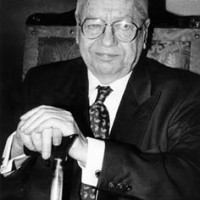CYCLE: DIRECTOR
From 19.10. To 19.10.2022.
8th Rendez-vous au cinema
Wojciech Jerzy Has
01.04.1925 - 03.10.2000

2000 in Lodz. In 1964, while studying at the visual arts academy, he took a film
course in Krakow. Soon after, he started working as assistant director. For
three years he worked in the studio for documentary film in Warsaw and then
joined the studio for instructional film in Lodz, where he spent the following
six years. In 1958, he directed his first feature film, The Noose (Petla),
which clearly showed his inclination towards subjective film expression that
eventually became characteristic of all of his films. In 1981, he became
director of the legendary film school in Lodz. Wojciech Jerzy Has is one of
Poland’s most appraised film directors.
Filmography
The Tribulations of Balthazar Kober (Niezwykla podróz Baltazara Kobera, 1988)
The Memoirs of a Sinner (Osobisty pamietnik grzesznika... przez niego samego spisany, 1986)
Write and Fight (Pismak, 1985)
An Uninteresting Story (Nieciekawa historia, 1982)
The Hour-Glass Sanatorium (Sanatorium pod Klepsydra, 1973)
The Doll (Lalka, 1969)
The Codes (Szyfry, 1966)
The Saragossa Manuscript (Rekopis znaleziony w Saragossie, 1965)
Gold Dreams (Zloto, 1963)
The Art of Loving (Jak byc kochana, 1963)
Partings (Rozstanie, 1961)
Roomers (Wspólny pokój, 1960)
Farewells (Pozegnania, 1958)
The Noose (Petla, 1958)